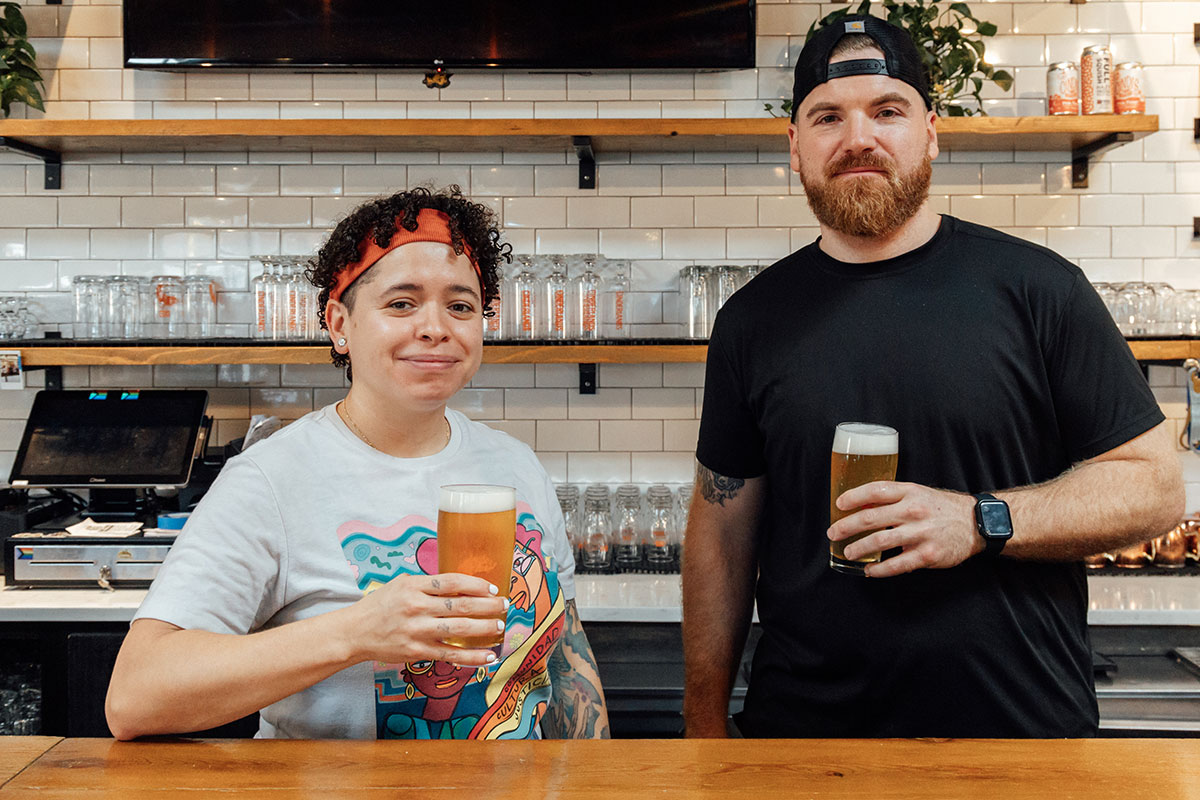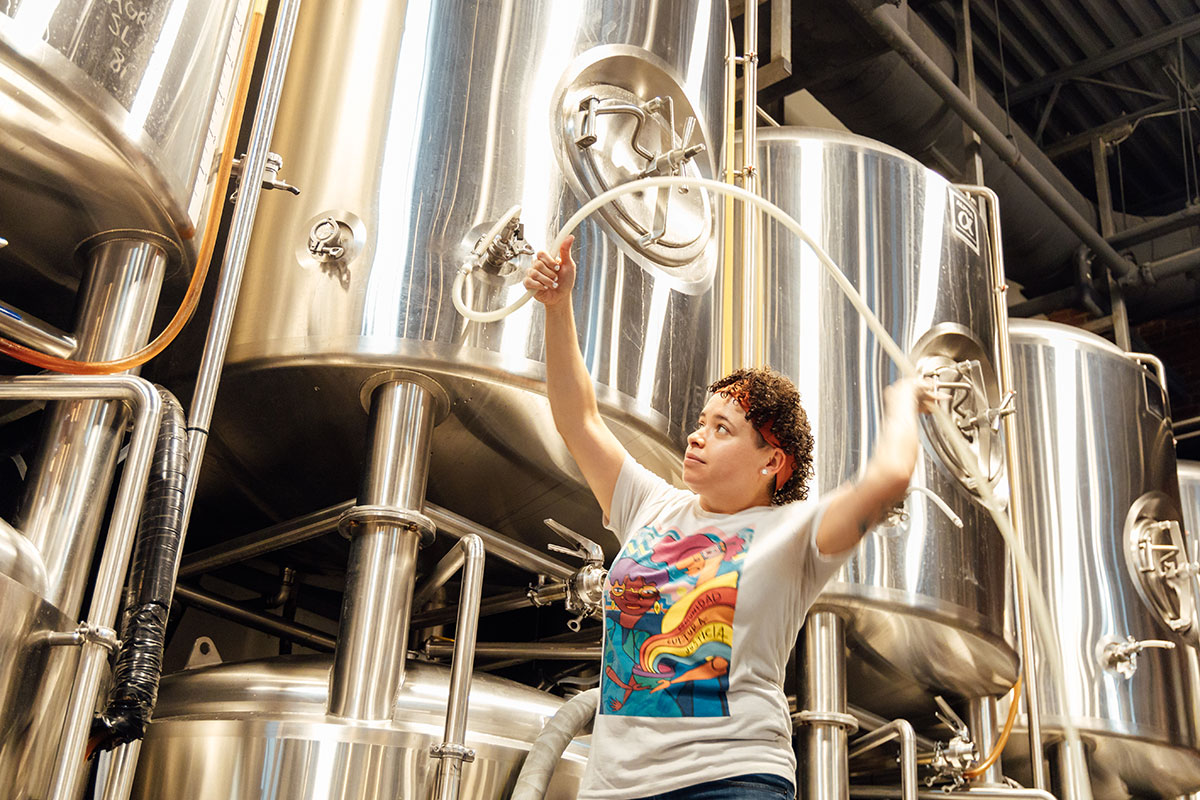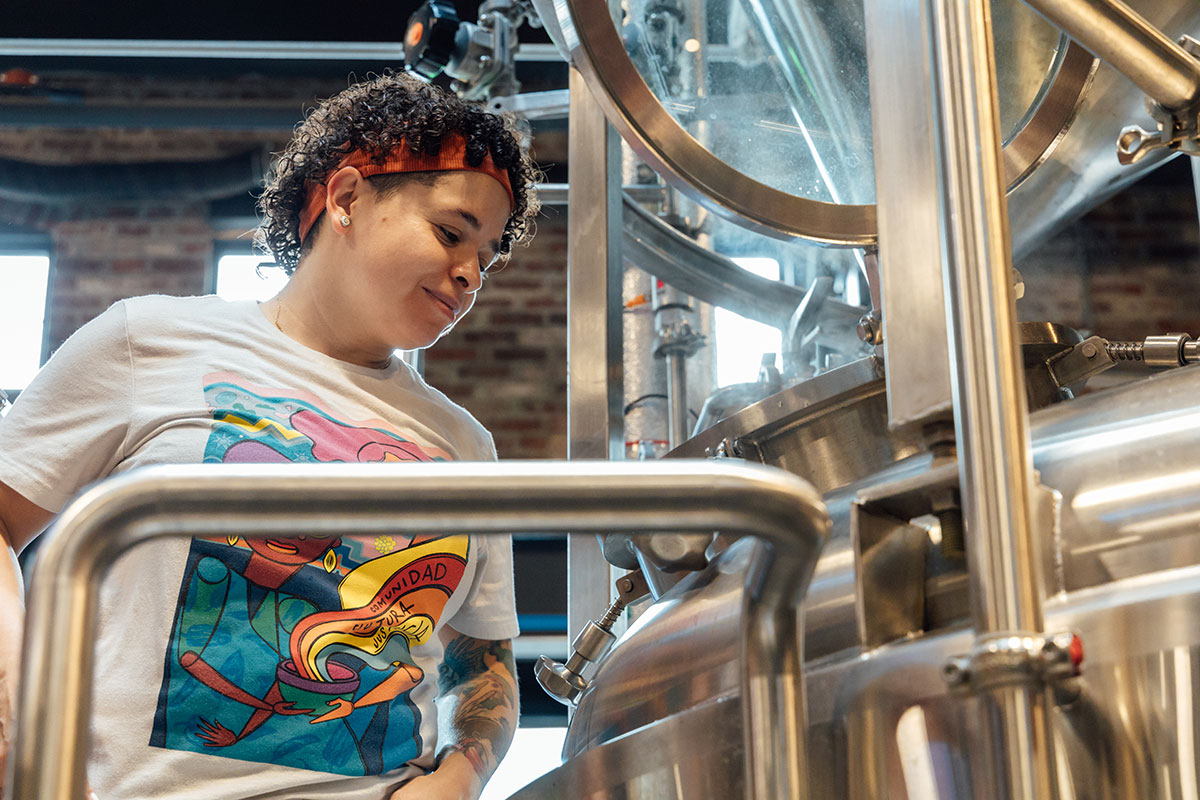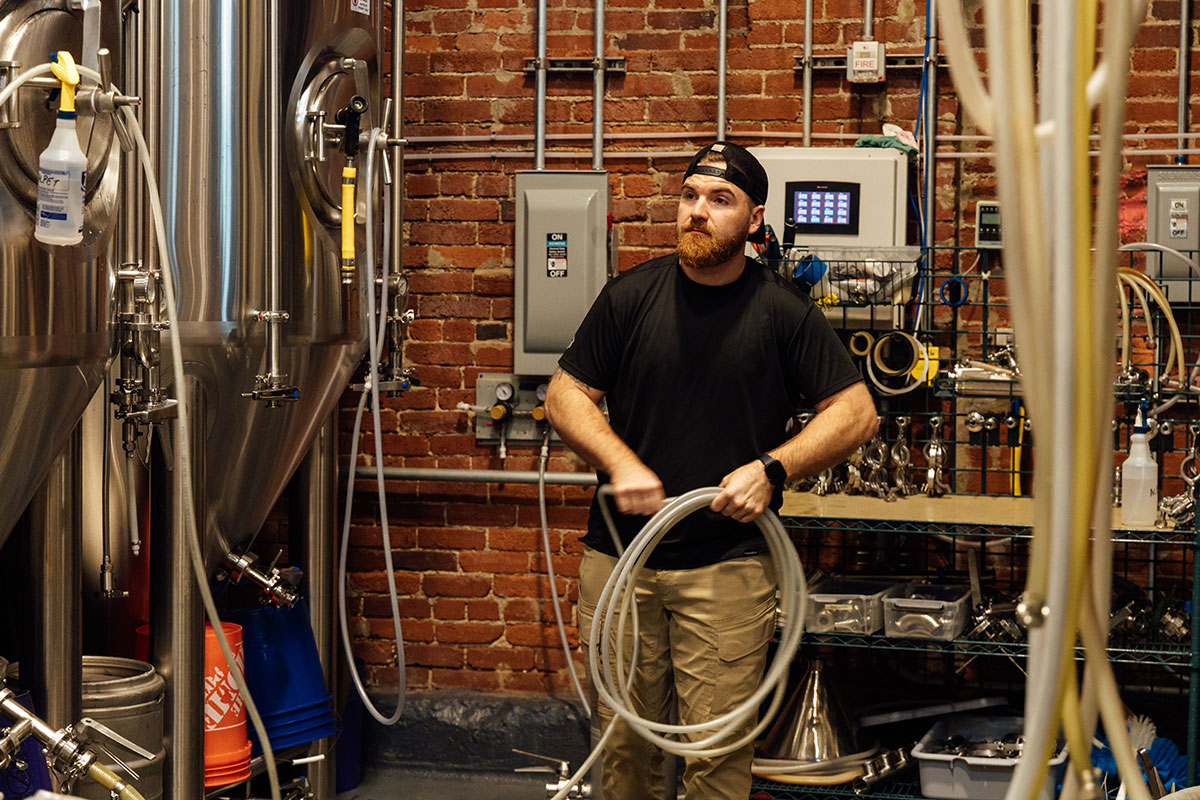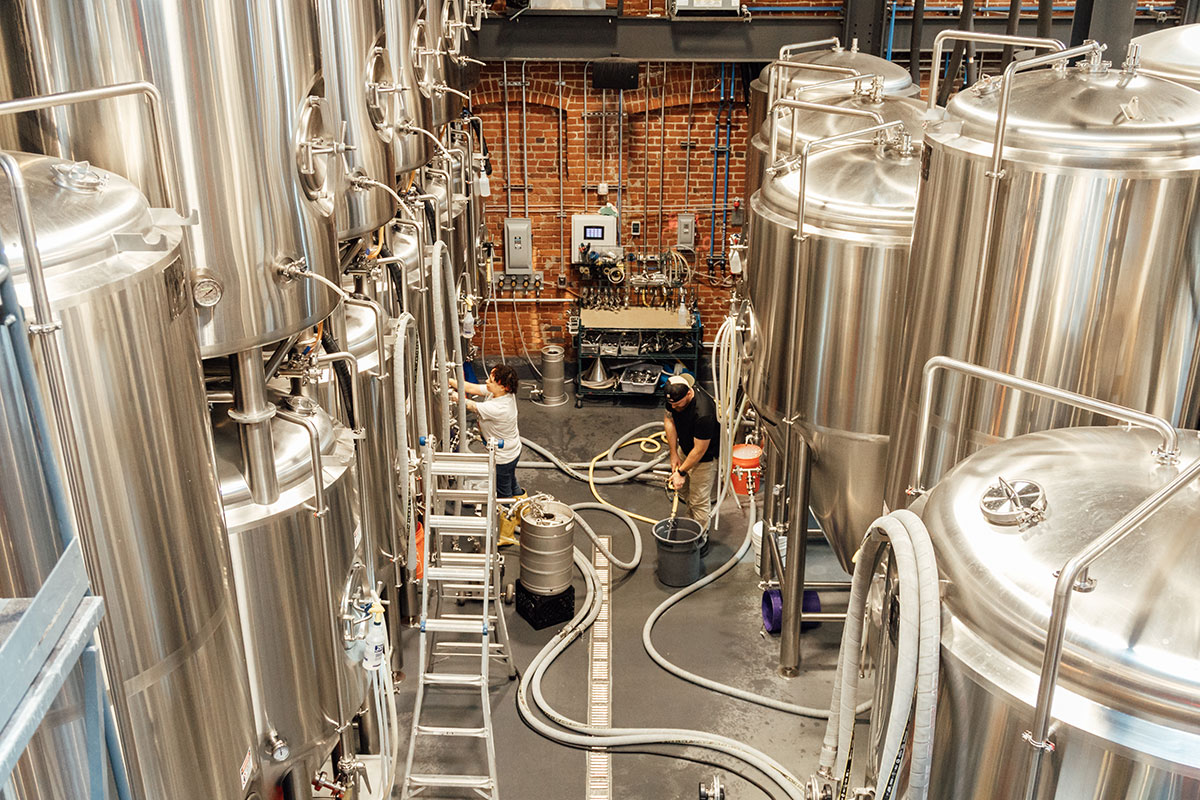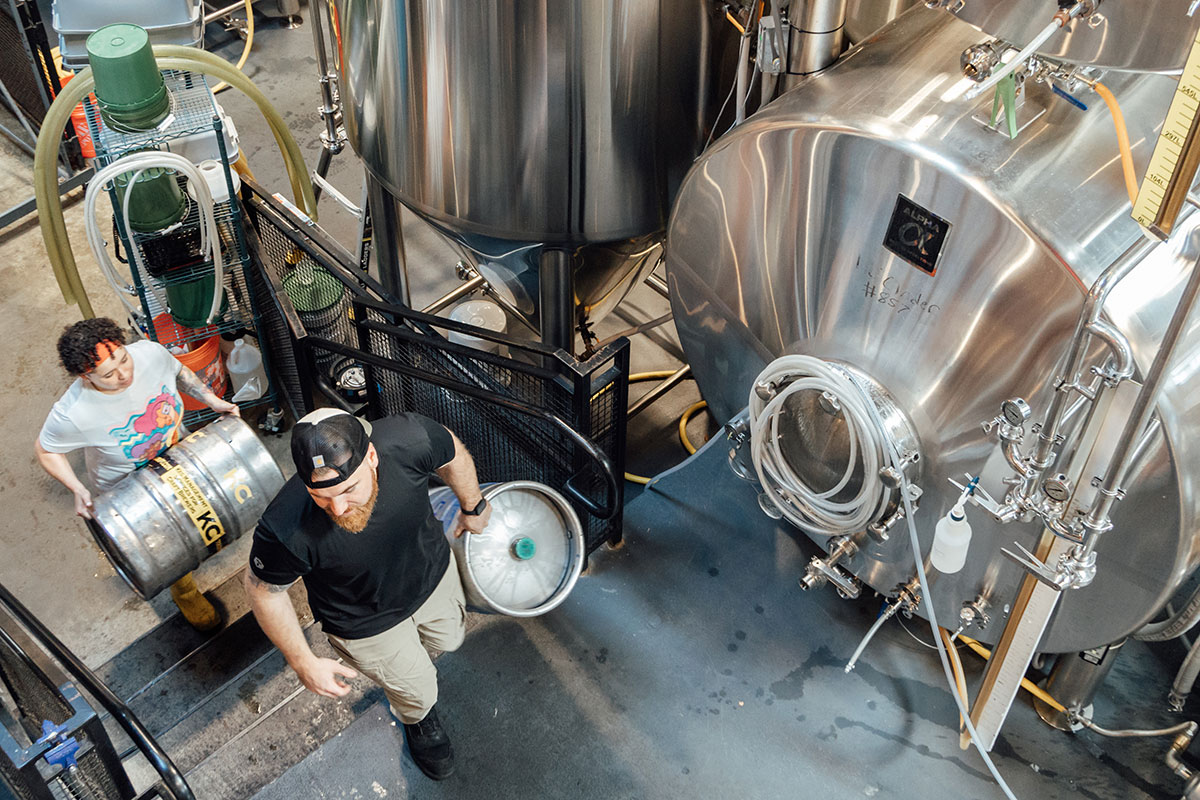Two Brewing Academy Alums Find Their Way to Cinderlands Beer Wednesday, September 25, 2024
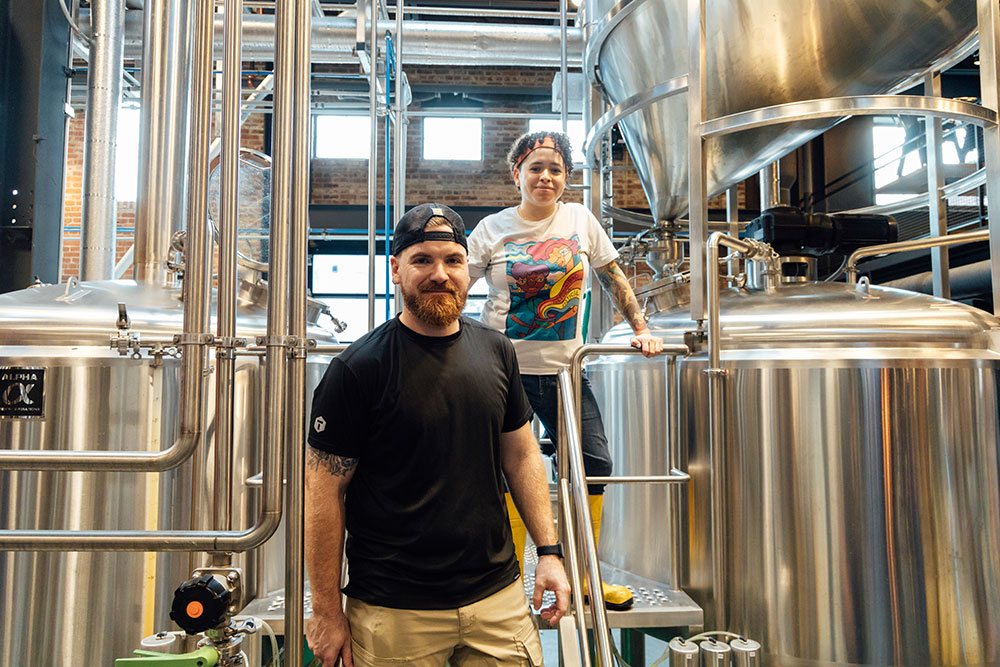
Adam Zimmerman and Nina Santiago, who both completed the Brewing Science Academy, work together at Cinderlands Beer Co. Photos by Ethan Stoner '25.
"If you’re into beer and you have not networked with anybody, or if you’re just worried about not knowing as much as somebody else, the class will put you in a position to be able to apply for a job somewhere and be able to talk confidently about what you learned. You have a leg up on somebody who doesn’t have any formal education on beer. It definitely helped me get a job."
The Brewing Science Academy at Point Park University is designed for both novices and experienced brewers alike who want to deepen their understanding of the science behind beer brewing. Two recent alumni of the program are putting their new knowledge to work in the same brewery, Cinderlands Beer Co. Nina Santiago, who finished the program in summer 2024, works as a brewing assistant at Cinderlands, and Adam Zimmerman, who completed both Brewing 101 and Brewing 201 in 2023, works as a cellar assistant and packaging assistant in the warehouse.
For both Santiago and Zimmerman, the course has opened new career pathways that will put them on the trajectory to eventually fulfill their dreams of being a head brewer. Below, they answer questions about their experience and encourage "anybody who's interested in anything beer" to take the course.
What led you to enroll in the program?
Santiago: I was working at Necromancer Brewing when I applied for the program. My strong suit wasn’t the chemistry or science side, especially around water chemistry, which is one of the important factors when it comes to brewing. I thought I could pair my on-the-job training with the coursework and be a more well-rounded brewer.
Zimmerman: I was a line cook at Spoonwood Brewing Company but had been home-brewing for a few years. The brewer at Spoonwood encouraged me to do anything that increases my education in brewing. I have more of a science background from college, and now I’m applying the practical applications to the theory I had known before.
What did you learn in the program?
Santiago: My degree from college was in business, so my goal was to learn the science behind brewing. For anyone who wants to learn more about the why behind brewing — Why does this happen? What causes what you make and put into a tank to actually become alcohol? — it’s a great start. Those things are a little hard to learn on the job, where you get more the practical side of it.
I feel I was able to get a whole semester of chemistry understanding in such a short amount of time. All of the teachers did a really great job emphasizing the importance of the chemistry and that it may seem overwhelming, but when you apply it to what you already know, it starts to make a lot of things click.
Zimmerman: Before I took the class, if something went wrong in my homebrews, I didn’t know why. The chemistry class helped me understand why certain things need to happen. The fluid dynamics classes are helping me a lot now that I’m running the canning line at Cinderlands. The pressures need to be accurate, so since I’ve been at Cinderlands, I’m using a lot of it.
How did the class fit into your goals going forward?
Santiago: Sometimes when you get into it not having as much experience, there’s a little bit of an imposter syndrome. The class definitely helped build up my confidence when it came to talking about yeast management or what chemical reactions were happening. One of the things we’re taught is if you know your water chemistry it will make you a phenomenal brewer because that is your seasoning of the beer. It allows you to feel more confident, knowing the more in-depth topics.
It’s getting me closer to my goal, because now I have a base point as far as science goes. I want to be a head brewer and own a microbrewery. I want to get into the funky side of beer — the mixed fermentation, mixed culture, wild yeast strains, things like that. I’m looking forward to the second level of the class to get into that.
Zimmerman: I think anybody who gets into beer wants to be able to have their own brewery—that’s why there’s so many. I want to get more into cellaring, and ideally, be head brewer eventually somewhere or at my own place.
Anything else you’d like to add?
Santiago: This class will help fight imposter syndrome — especially going into a male-dominated space. The stereotype of a brewer is a flannel, beard, hat and whatnot. But beer is for anybody. It’s not just for straight white guys anymore. This class helps break that barrier into the industry.
Hiring employers are going to see this course on a resume and already be interested. Point Park has worked closely with the breweries and owners, so they know the integrity of the program and what the program has to offer, and they know that person will be prepared for an entry-level position or higher.
If you have an inkling of any interest in any type of fermented beverage, take the class.
Zimmerman: If you’re into beer and you have not networked with anybody, or if you’re just worried about not knowing as much as somebody else, the class will put you in a position to be able to apply for a job somewhere and be able to talk confidently about what you learned. You have a leg up on somebody who doesn’t have any formal education on beer. It definitely helped me get a job. I would recommend it to anybody who’s interested in anything beer.
The class also networks you. I met so many people who were in beer already, whether it be lecturers or the judges at the competition at the end of the class. We now have this common ground, and who knows where those relationships can go?
More About: School of Continuing and Professional Studies


